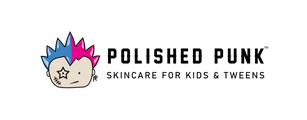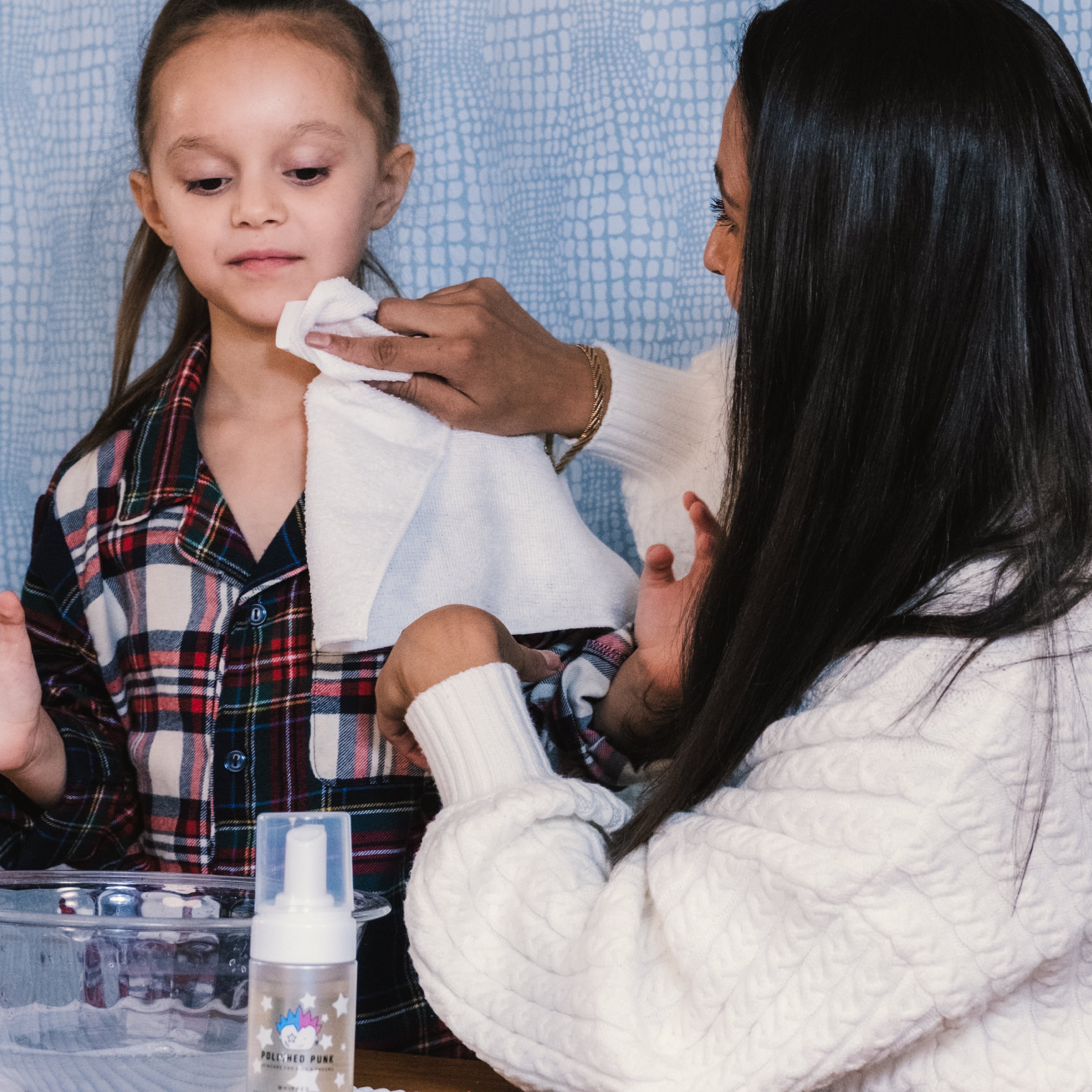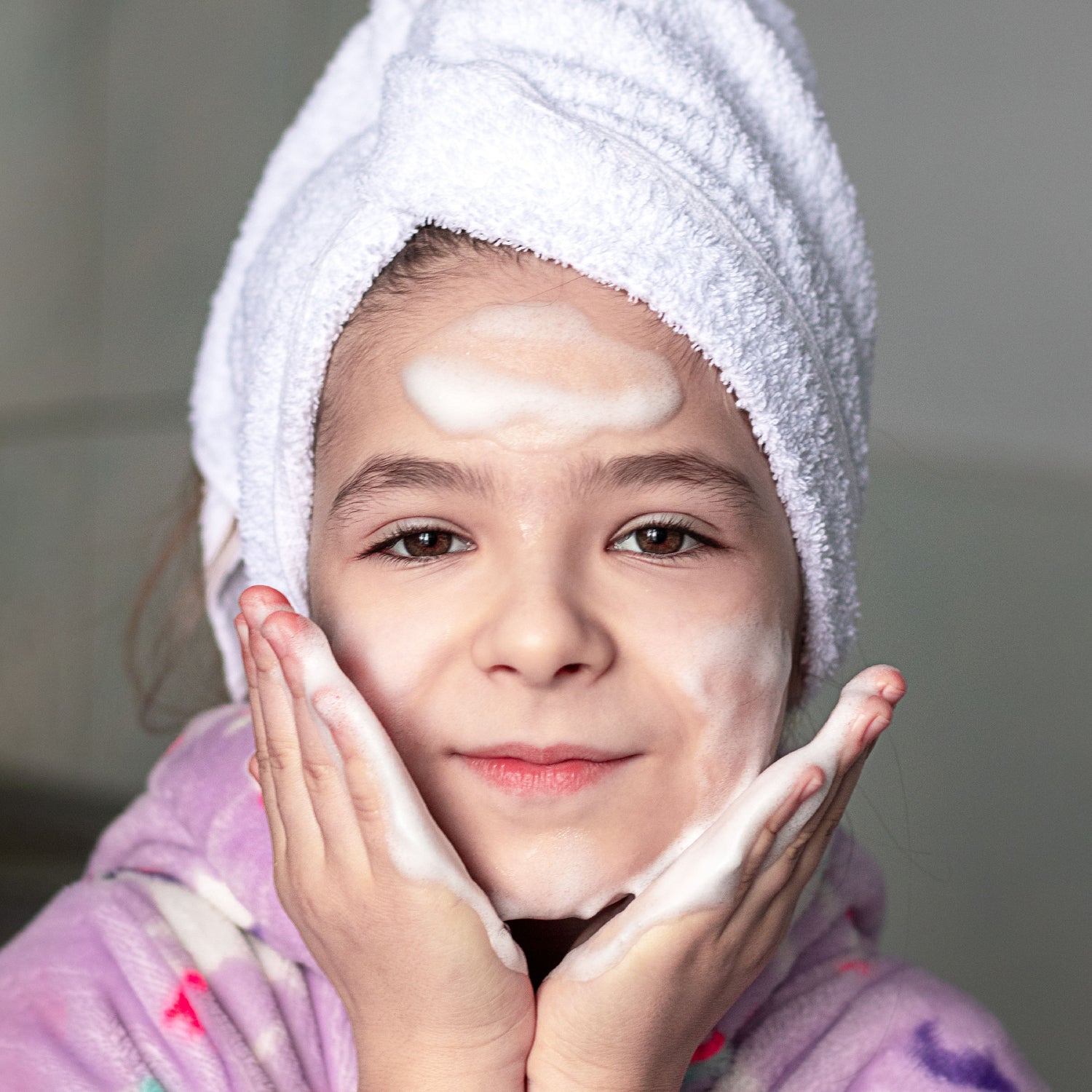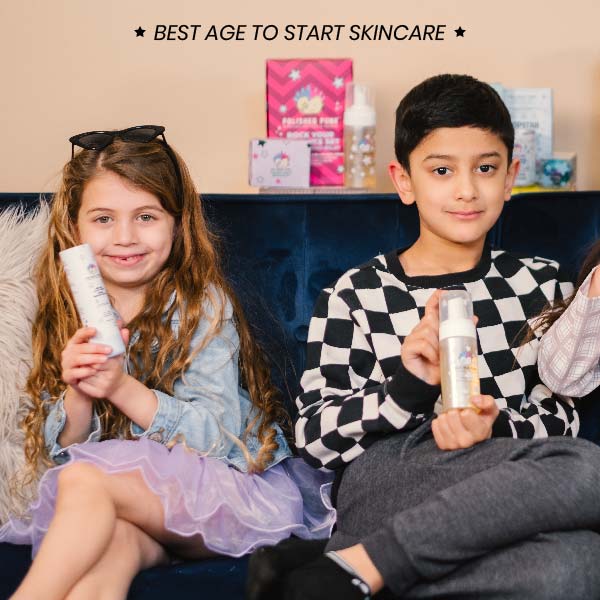As kids and tweens start exploring skincare, it's crucial to choose products that are both effective and gentle. One standout option is foam wash, particularly for young, sensitive skin. This guide delves into the benefits of foaming facial cleansers, why they're ideal for young skin, and how to incorporate them into a daily routine.
Why Choose Foam Cleanser Face Wash for Kids?
Foam cleanser face washes are incredibly gentle, making them perfect for kids and tweens. These cleansers create a light, airy foam that effectively removes dirt and oil without harsh scrubbing. The foamy texture ensures a thorough but gentle cleanse, which is essential for maintaining the delicate balance of young skin.
Benefits:
Gentle on Skin: The soft foam is less abrasive, reducing the risk of irritation.
Effective Cleaning: Penetrates pores to remove impurities without over-drying.
Fun to Use: The foaming action can make the skincare routine enjoyable, encouraging consistency.
The Benefits of Foaming Face Wash for Tweens
As tweens approach puberty, their skin begins to change, often becoming oilier and more prone to breakouts. A foaming face wash can help manage these changes by providing deep cleansing that tackles excess oil and dirt.
Facial Foam Cleanser Benefits:
Reduces Acne: Helps keep pores clear, reducing the likelihood of breakouts.
Balances Oil Production: Controls excess oil without stripping the skin of its natural moisture.
Soothes Sensitive Skin: Formulated to minimize irritation, making it suitable for all skin types.

The Best Facial Cleanser for Growing Skin
Selecting the best facial cleanser is vital for maintaining healthy skin during the formative years. Foam cleansers are typically hypoallergenic and free from harsh chemicals, which is crucial for kids and tweens who might have sensitive skin.
Key Features:
Hypoallergenic: Reduces the risk of allergic reactions.
Non-Comedogenic: Won’t clog pores, preventing acne.
Natural Ingredients: Often contains soothing ingredients like aloe vera and chamomile.
Polished Punk’s Whipped Foaming Facial Cleanser
The Whipped Foaming Facial Cleanser offers a worry-free solution for all your kid’s skincare needs. This face wash is specially formulated with natural and organic ingredients, making it an excellent choice for kids and tweens who need gentle yet effective skincare.
Enriched with aloe, this cleanser ensures hydrated, glowing, and dewy-fresh skin. It also contains soothing and anti-inflammatory extracts from calendula officinalis and chamomilla recutita flowers, which help combat dryness, itchiness, and skin irritation while improving overall skin health. Additionally, the inclusion of rosa canina and sunflower seed oils further nourishes and protects young skin.
Designed specifically for young, sensitive skin, the Whipped Foaming Facial Cleanser is safe, gentle, and highly effective at removing dirt and impurities without disrupting the skin’s delicate moisture balance. Its lightweight, foamy texture makes it enjoyable to use, encouraging kids and tweens to stick to their daily skincare routine. Ideal for sensitive skin but versatile enough for all skin types, this cleanser is the perfect addition to any young skincare regimen.
Incorporating Foam Cleanser into Skincare Sets
Skincare sets for kids and tweens should be simple yet effective. A basic set might include a gentle foaming facial cleanser, a light moisturizer, and sunscreen. Starting with these essentials can help establish a lifelong habit of good skincare.
Skincare Routine:
Cleansing: Use a foam cleanser face wash twice daily.
Moisturizing: Follow up with a gentle moisturizer to keep skin hydrated.
Sun Protection: Apply sunscreen daily to protect from UV rays.

Tips for Using Foaming Facial Cleanser
Using a foaming facial cleanser is straightforward but ensuring proper use will maximize its benefits. Teach kids and tweens the right way to wash their face to build good habits.
Steps for this:
Wet the Face: Use lukewarm water to open pores.
Apply Cleanser: Dispense a small amount of foam cleanser and gently massage onto the face in circular motions.
Rinse Thoroughly: Ensure all cleanser is removed to prevent residue buildup.
Pat Dry: Use a clean towel to gently pat the face dry, avoiding rubbing.
Note: If you have dry skin, make sure to check if it is suitable for dry skin.
Some Harsh Chemicals That The Best Facial Cleanser Should Not Have
When selecting the best facial cleanser for kids and tweens, it's essential to avoid certain harsh chemicals that can irritate young, sensitive skin. Here’s a list of some common harmful ingredients that should not be present in a high-quality foam wash or any skincare product for young users.
Sulfates
What They Are: Sulfates, like sodium lauryl sulfate (SLS) and sodium laureth sulfate (SLES), are detergents used to create lather.
Why to Avoid: They can strip the skin of natural oils, leading to dryness and irritation. For kids and tweens, whose skin is more delicate, sulfates can cause significant discomfort and even exacerbate skin conditions like eczema.
Parabens
What They Are: Parabens are preservatives used in many skincare products to extend shelf life.
Why to Avoid: Studies suggest that parabens can disrupt hormone function, which is particularly concerning for young, developing bodies. They can also cause skin irritation and allergic reactions.
Phthalates
What They Are: Phthalates are chemicals used to make plastics more flexible and to help dissolve other ingredients in skincare products.
Why to Avoid: Like parabens, phthalates are known endocrine disruptors. Long-term exposure can lead to various health issues, including developmental problems in kids.
Artificial Fragrances and Dyes
What They Are: These are synthetic ingredients used to add scent and color to skincare products.
Why to Avoid: Artificial fragrances and dyes can cause allergic reactions, skin irritation, and even respiratory problems. For kids and tweens, using products with these additives can increase the risk of developing sensitivities.
Alcohols (Particularly Denatured Alcohol)
What They Are: Denatured alcohol (often listed as alcohol denat.) is used as a solvent and to provide a quick-drying finish.
Why to Avoid: While not all alcohols are bad for the skin, denatured alcohol can be very drying and irritating. It strips away the skin’s natural barrier, making it more susceptible to damage and moisture loss.
Formaldehyde and Formaldehyde-Releasing Agents
What They Are: These are preservatives used to prevent bacterial growth in skincare products.
Why to Avoid: Formaldehyde is a known carcinogen and can cause skin irritation and allergic reactions. Formaldehyde-releasing agents slowly release small amounts of formaldehyde over time, posing similar risks.
Frequently Asked Questions (FAQs)
1. Is foam cleanser face wash safe for kids?
Yes, foam cleansers are designed to be gentle and are generally safe for kids. Choose products specifically formulated for young, sensitive skin.
2. How often should kids use foaming face wash?
Kids and tweens should use a foaming face wash twice daily – once in the morning and once at night.
3. Can foam cleansers help with acne?
Yes, foaming facial cleansers can help prevent and reduce acne by keeping pores clear and balancing oil production.
4. Can a foam cleanser be part of a skincare set?
Look for hypoallergenic, non-comedogenic products with natural ingredients to ensure they are safe and gentle.
5. Can a bath sponge help with acne?
Absolutely. A foam cleanser can be the cornerstone of a simple skincare set that includes a moisturizer and sunscreen for a complete routine.





